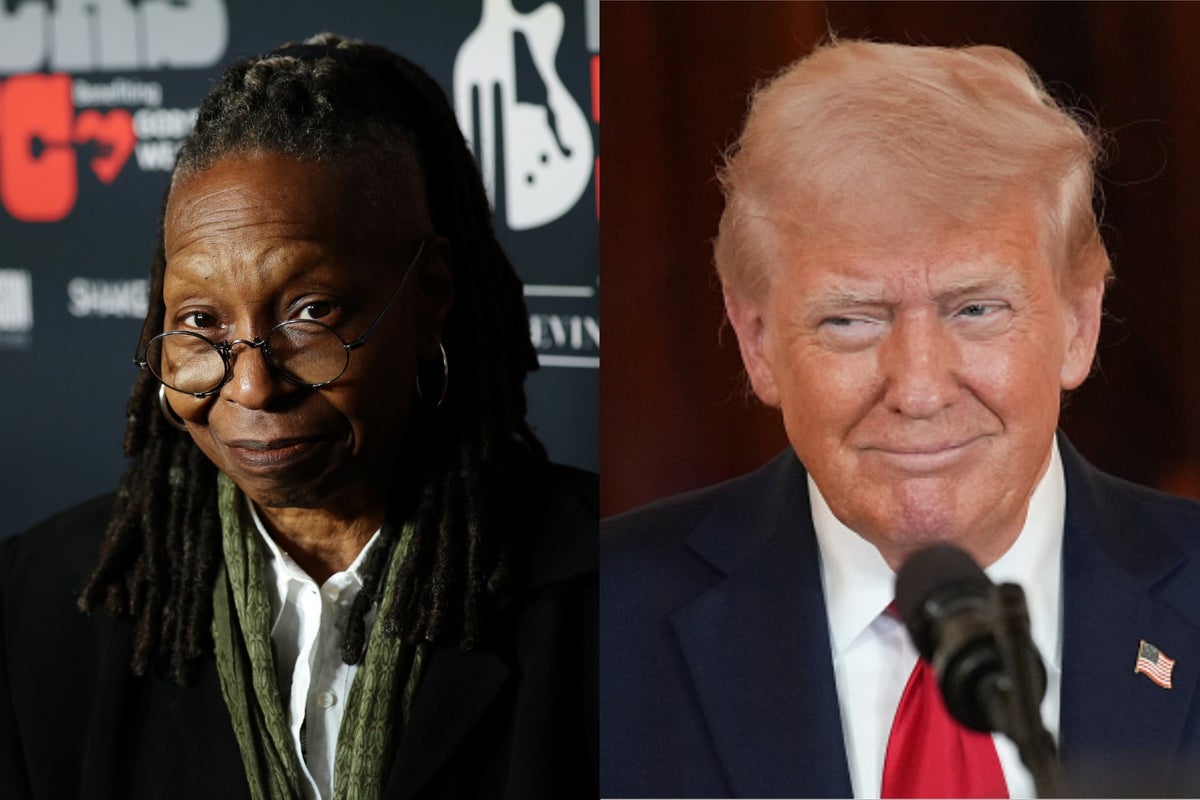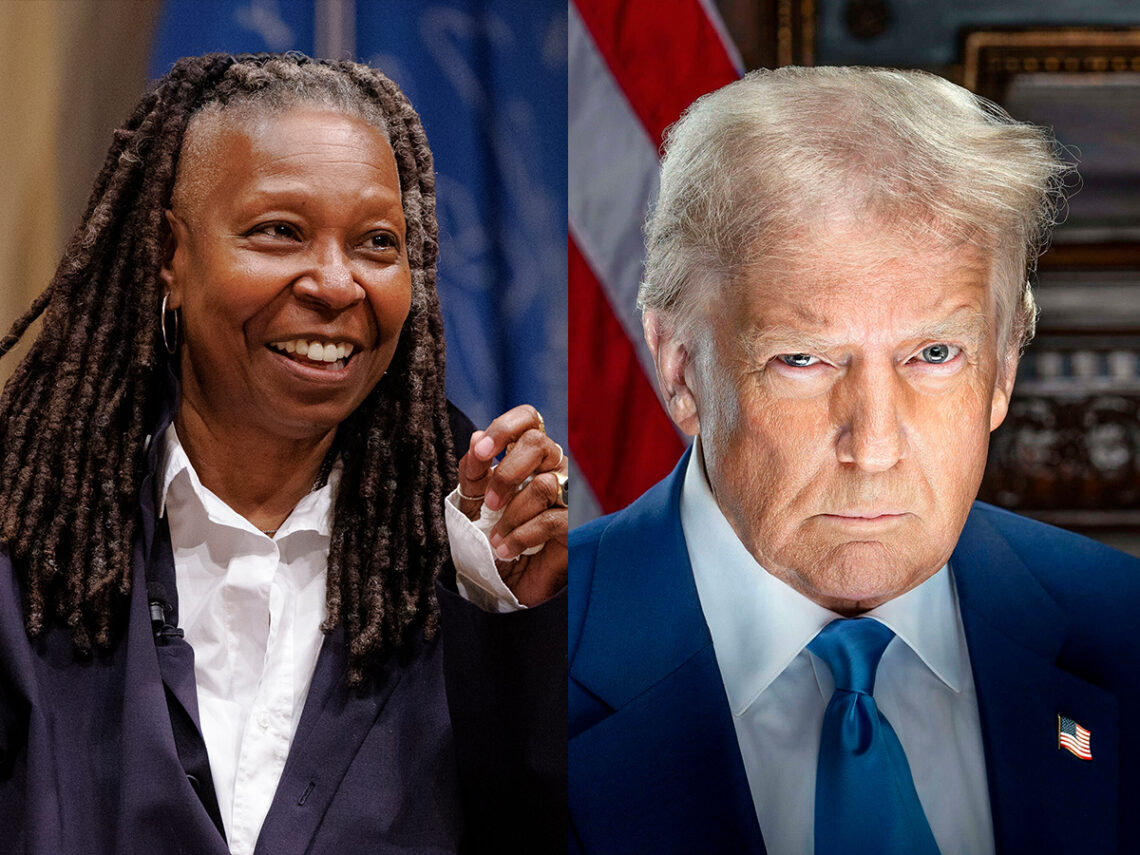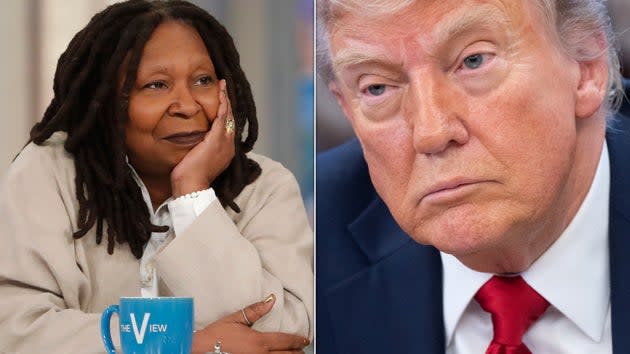Whoopi Goldberg Slams Donald Trump’s Threat of Foreign-Made Movie Tariff on Hollywood: ‘We’re the Best in the World’

In a recent episode of “The View,” Whoopi Goldberg did not hold back her criticism of President Donald Trump’s proposed tariff on foreign-made movies. Her comments ignited a broader discussion about the implications of such a policy on the Hollywood industry and the art of storytelling that transcends borders. The legendary actress and comedian emphasized that a tariff would not only threaten jobs in the entertainment sector but also restrict creative possibilities by directing productions to remain strictly within the United States.
The Impact of Tariffs on Hollywood

Goldberg articulated her objections quite pointedly, questioning the efficacy of prioritizing a tariff over more pressing economic issues faced by Americans, such as the rising prices of essential goods. She argued that the proposal could have dire consequences for a sector that thrives on global partnerships and collaborations. By imposing tariffs on films produced abroad, Trump risks suffocating the creativity that defines Hollywood and its ability to influence world culture.
In her passionate address, Goldberg highlighted the unique position of American cinema as a cultural ambassador, teaching global audiences about American values, diversity, and experiences. By curtailing international collaborations, the proposed tariff may alienate foreign markets that have increasingly embraced American productions.
International Collaboration in Filmmaking

During the discussion, legal expert Sunny Hostin supported Goldberg’s viewpoint by noting that Trump’s understanding of the film industry’s intricacies appears limited. She pointed out that American films do not just entertain; they play a significant role in the country’s economic landscape due to their global popularity. The international success of these films contributes to job creation and economic growth within the U.S.
Goldberg went on to provide insights into why many productions choose to shoot overseas. Various logistical advantages, including tax incentives and state-of-the-art facilities, make foreign locations appealing. She invited the administration to reflect on the multitude of benefits derived from international filmmaking and urged policymakers to rethink the proposed tariffs with the understanding that storytelling knows no borders.
The Administration’s Response and Artistic Independence

Goldberg’s comments occurred amid Trump’s announcement of appointing conservative actors as “Special Ambassadors” to Hollywood, which he claims is part of an initiative aimed at boosting domestic filmmaking and addressing the competitive landscape from foreign productions. However, this approach ignites questions about artistic independence and the diverse range of voices that are often represented in the film industry.
The potential fallout from his proposed measures has raised eyebrows among artists and creators who fear that a protective policy could stifle the creative environment that has made Hollywood a global leader in entertainment. With a landscape growing more interconnected than ever, restricting access to international storytelling methods is viewed by many in the industry as regressive.
Goldberg’s passionate declaration encapsulates the ethos of Hollywood, reminding us that the industry is not just about profits and boxed office numbers, but also about cultural significance. Her resounding message, “We’re the best in the world,” reflects the pride within an industry that has continually broken barriers and fostered understanding on a global scale.
A Call for Broader Perspectives in Policy Making

In conclusion, the conversation around tariffs on foreign-made films is not just about financial implications; it speaks to the heart of what storytelling represents. Whoopi Goldberg’s strong stance highlights the need for policymakers to adopt a broader perspective that embraces international collaboration rather than constricting it. As Hollywood continues to navigate the complexities of a globalized society, the voices of artists must remain central in shaping the future of the film industry.

To stay updated on these important developments in the film industry, consider subscribing to newsletters or following industry-related news outlets. The conversation is ongoing, and your voice matters in ensuring that creativity flourishes beyond borders.





